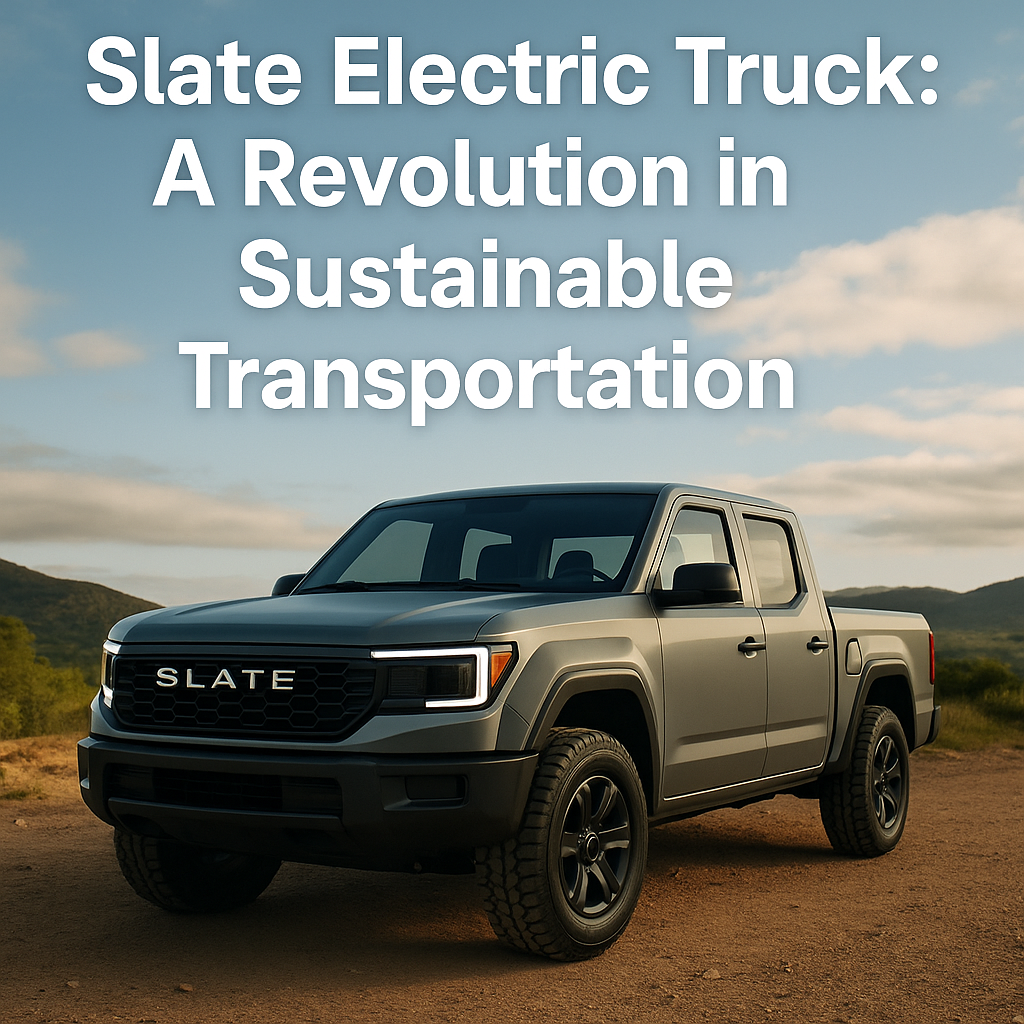As electric vehicles (EVs) continue to gain traction in the U.S., 2025 is shaping up to be a landmark year for electric truck owners and prospective buyers. One of the biggest incentives driving this change is the EV truck tax credit—a government-backed financial benefit that reduces the overall cost of purchasing an electric truck.
If you’re planning to buy an electric truck in 2025 or are curious about how tax credits work for EVs, this guide covers all the important details, eligibility criteria, application procedures, and frequently asked questions.
What Is the EV Truck Tax Credit?
The EV truck tax credit is part of the broader federal clean vehicle tax credit program, designed to incentivize the purchase of environmentally friendly vehicles. This tax credit reduces the federal income tax you owe when you buy a qualifying electric vehicle, including electric pickup trucks and commercial electric trucks.
Under the Inflation Reduction Act of 2022, which extends into 2025 and beyond, taxpayers may be eligible for up to $7,500 for qualifying new EV trucks and up to $4,000 for qualifying used EV trucks.
Key Highlights of the EV Truck Tax Credit 2025
| Feature | Details |
|---|---|
| Credit Amount (New EVs) | Up to $7,500 |
| Credit Amount (Used EVs) | Up to $4,000 or 30% of sale price |
| Applies to | Electric pickup trucks, SUVs, vans, light-duty trucks |
| Income Limits (New) | $150,000 (individual), $225,000 (head of household), $300,000 (joint) |
| Income Limits (Used) | $75,000 (individual), $112,500 (head of household), $150,000 (joint) |
| Vehicle Price Cap (New) | Trucks & SUVs under $80,000 |
| Vehicle Age (Used) | Must be at least 2 years old |
| Point of Sale Credit | Available starting in 2024 and continuing through 2025 |
Which Electric Trucks Qualify for the Tax Credit in 2025?
For a truck to qualify for the EV tax credit in 2025, it must meet the following criteria:
-
Final assembly must occur in North America
-
Battery components must come from U.S. or Free Trade Agreement (FTA) countries
-
Vehicle must be classified as a truck or SUV (check manufacturer classification)
-
Purchase price must be under $80,000 for new vehicles
Popular Electric Trucks That May Qualify:
-
Ford F-150 Lightning
-
Chevrolet Silverado EV
-
Rivian R1T
-
Tesla Cybertruck (dual-motor variants)
-
GMC Hummer EV Pickup (may not qualify due to price caps)
It’s essential to verify vehicle eligibility with the dealership or manufacturer at the time of purchase.
How the EV Truck Tax Credit Works
1. Point-of-Sale Discount (Starting 2024 – Continuing in 2025)
As of 2024, you can claim the EV tax credit at the time of purchase instead of waiting for your tax return. This continues into 2025 and means the dealer can apply the credit immediately, reducing your out-of-pocket cost.
2. Filing with the IRS
If you don’t use the point-of-sale option, you can still claim the credit when filing your federal income tax return using IRS Form 8936.
3. Non-Refundable Credit
The EV truck tax credit is non-refundable, meaning it can only reduce your tax liability to zero, but you won’t receive any additional refund if the credit exceeds your tax owed.
EV Truck Tax Credit for Commercial Vehicles in 2025
The Commercial Clean Vehicle Credit is also available in 2025, which benefits businesses buying electric trucks:
-
Credit up to $40,000 for medium- and heavy-duty electric trucks
-
Must be used for business
-
No income or price cap restrictions
This is perfect for fleet operators, construction companies, and delivery services transitioning to EVs.
Benefits of the EV Truck Tax Credit
-
Lower upfront cost for new EV truck buyers
-
Encourages transition to eco-friendly transportation
-
Saves money on fuel and maintenance over time
-
Tax advantages for individuals and businesses
Steps to Claim the EV Truck Tax Credit in 2025
-
Confirm vehicle eligibility on the IRS and Department of Energy websites.
-
Verify dealer registration with the IRS for point-of-sale credits.
-
Ensure your income qualifies under the current limits.
-
Obtain proper documentation (sale contract, VIN, seller’s report).
-
File IRS Form 8936 if not applying at the point of sale.
Challenges and Things to Watch For
-
Battery sourcing requirements can disqualify some trucks.
-
Income phaseouts apply strictly—stay under the limits.
-
Dealer participation in the point-of-sale program is not guaranteed.
-
Some luxury models exceed the $80,000 cap.
EV Truck Tax Credit vs State Incentives
In addition to federal credits, many U.S. states offer their own EV incentives, including:
-
California: Up to $7,500 through the Clean Vehicle Rebate Project
-
New York: Drive Clean Rebate up to $2,000
-
Colorado: Offers an additional state tax credit up to $5,000
-
New Jersey: Exempts sales tax for EVs
Stacking federal and state incentives can significantly reduce the total cost of your electric truck.
Environmental Impact of EV Trucks
Electric trucks emit zero tailpipe emissions, helping reduce greenhouse gases. Many EV trucks also feature regenerative braking, solar charging capabilities, and bi-directional power that can be used to power homes or tools.
FAQs About EV Truck Tax Credit 2025
1. Do I have to wait for tax season to claim the credit?
No. Starting in 2024 and continuing into 2025, the credit can be applied at the dealership during purchase as a discount.
2. What if I don’t owe taxes?
You won’t benefit from the credit unless you opt for the point-of-sale option. The credit is non-refundable, so you must owe taxes to benefit from it when filing.
3. Can I claim the credit if I lease an electric truck?
Leases typically do not qualify for the individual tax credit, but leasing companies may claim the credit and potentially pass the savings to you in the form of lower monthly payments.
4. What documents do I need to claim the credit?
You’ll need:
-
Purchase agreement
-
Vehicle Identification Number (VIN)
-
IRS Form 8936
-
Dealer’s report for point-of-sale credits
5. Will the Tesla Cybertruck qualify for the credit?
Possibly. It depends on the specific model, its final price, and whether it meets battery sourcing and assembly requirements. Lower-cost versions are more likely to qualify.
6. Can businesses claim the EV truck tax credit?
Yes. Businesses can qualify for the Commercial Clean Vehicle Credit, which offers up to $40,000 for eligible electric trucks.
7. Can used electric trucks qualify for the credit?
Yes. Used EV trucks qualify for a separate credit of up to $4,000, provided they are at least 2 years old, purchased from a dealer, and meet income and price limits.
Conclusion
The EV truck tax credit in 2025 presents an incredible opportunity for individuals and businesses to reduce their carbon footprint and benefit from significant financial incentives. With the federal government offering up to $7,500 in tax credits—and some states adding even more—now is the time to consider switching to an electric truck.
Make sure to check eligibility criteria, income limits, and vehicle qualifications before making your purchase. As EV technology continues to evolve, tax benefits like these will play a key role in shaping the future of transportation.


